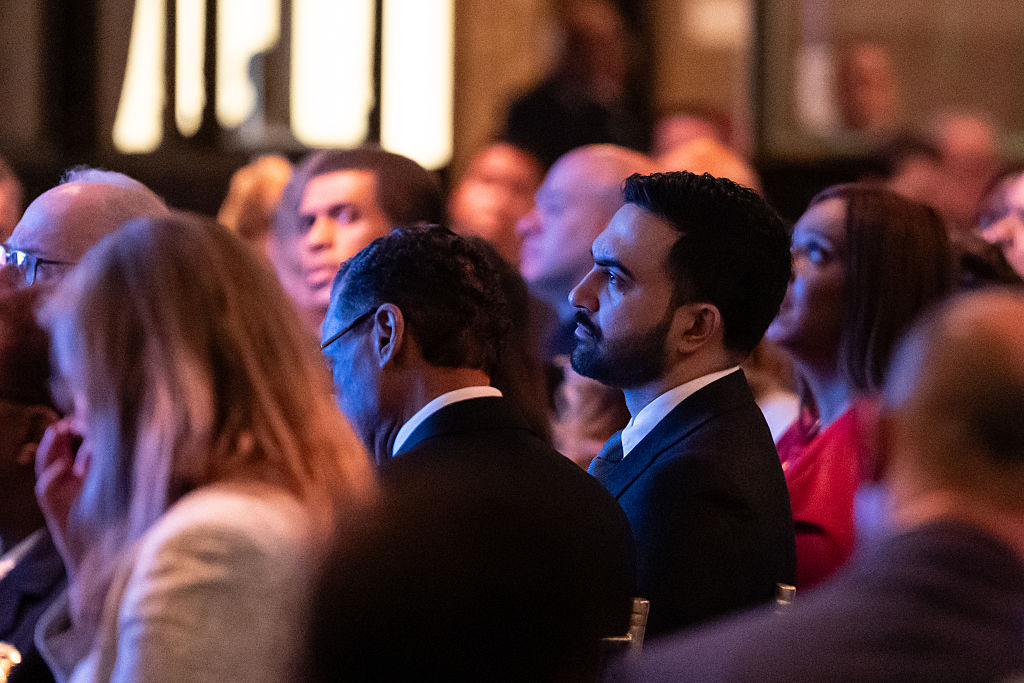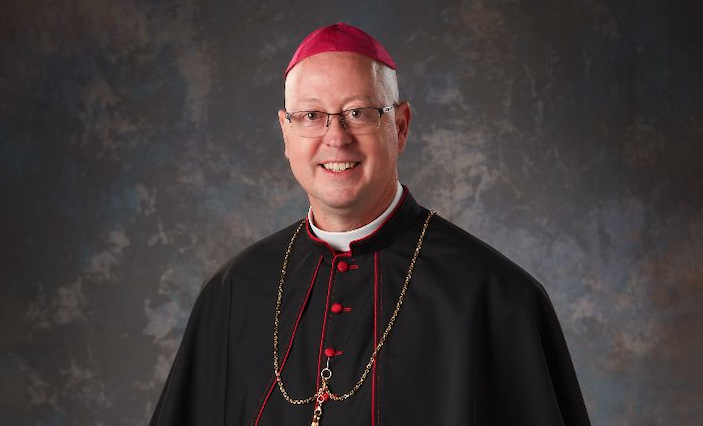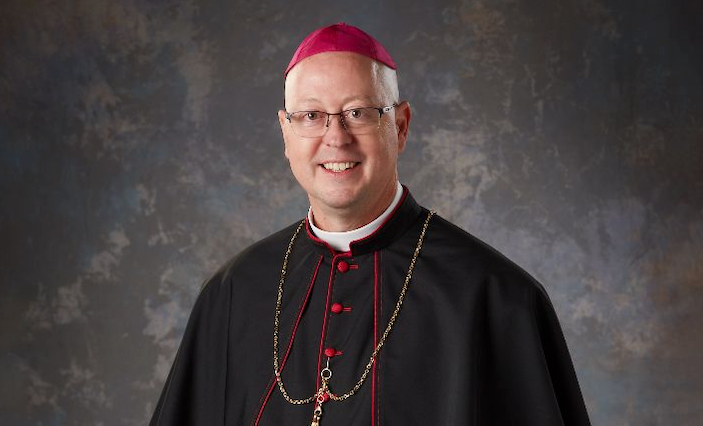
The Holy Father accepted the resignation of Amarillo Bishop Patrick Zurek, who has reached retirement age.


The Holy Father accepted the resignation of Amarillo Bishop Patrick Zurek, who has reached retirement age.

![After skipping installation, New York mayor meets Archbishop Hicks #Catholic Mayor Zohran Mamdani broke a long-standing New York tradition when he missed the Feb. 6 installation Mass for Archbishop Ronald Hicks at St. Patrick’s Cathedral and met with the archbishop four days later.Joseph Zwilling, director of communications for the Archdiocese of New York, told EWTN News that “the mayor and the archbishop were together at a [New York Police Department] event” Feb. 10 and “then spoke by phone later in the day.”The archdiocese confirmed that Mamdani was invited to the installation Mass. Prior to Hicks’ installation, a sitting mayor was present for at least the past five archbishop installations, which were in 2009, 2000, 1984, 1968, and 1939. Hicks replaced Cardinal Timothy Dolan following his retirement.In Mamdani’s absence, Helen Arteaga, deputy mayor for Health and Human Services, attended the Feb. 6 installation Mass. Prior to the meeting and phone call, Mamdani congratulated Hicks on social media. “Congratulations to Archbishop Ronald Hicks on today’s installment and welcome to New York City,” Mamdani said in a post on X. “I know that Archbishop Hicks and I share a deep and abiding commitment to the dignity of every human being and look forward to working together to create a more just and compassionate city where every New Yorker can thrive.”TweetThe mayor’s press office did not immediately respond to a request for comment.Mamdani became the first Muslim and first democratic-socialist mayor of the city on Jan. 1.Bill Donohue, president of the Catholic League, a Catholic advocacy group, criticized Mamdani for missing the Mass, saying in a statement that Mamdani “ghosted the event.”“He could easily have been there,” Donohue said. “Instead, he attended to business as usual.”“One in 3 New Yorkers are Catholic, making them the largest faith community in the city,” he added. “Mamdani’s professed interest in diversity and inclusion obviously hits a brick wall when it comes to Catholics. He wants nothing to do with them.”Donohue also criticized some of Mamdani’s policy positions, which he said includes “rabid support for abortion, gay marriage, and transgenderism (including the child abuse inherent in sex-reassignment surgery for minors).”During his campaign, Mamdani vowed to increase public funding for abortion, hormone therapy drugs, and surgeries designed to make a person appear like the opposite sex.Mamdani defeated two candidates with nearly 51% of the vote in the November 2025 election. His plans include free buses, city-owned grocery stores, no-cost child care, raising the minimum wage to $30 per hour, and freezing the rent for people in rent-stabilized apartments.“Mamdani has been in office for just over a month, and already he is signaling to Catholics that they are not welcome,” Donohue said. After skipping installation, New York mayor meets Archbishop Hicks #Catholic Mayor Zohran Mamdani broke a long-standing New York tradition when he missed the Feb. 6 installation Mass for Archbishop Ronald Hicks at St. Patrick’s Cathedral and met with the archbishop four days later.Joseph Zwilling, director of communications for the Archdiocese of New York, told EWTN News that “the mayor and the archbishop were together at a [New York Police Department] event” Feb. 10 and “then spoke by phone later in the day.”The archdiocese confirmed that Mamdani was invited to the installation Mass. Prior to Hicks’ installation, a sitting mayor was present for at least the past five archbishop installations, which were in 2009, 2000, 1984, 1968, and 1939. Hicks replaced Cardinal Timothy Dolan following his retirement.In Mamdani’s absence, Helen Arteaga, deputy mayor for Health and Human Services, attended the Feb. 6 installation Mass. Prior to the meeting and phone call, Mamdani congratulated Hicks on social media. “Congratulations to Archbishop Ronald Hicks on today’s installment and welcome to New York City,” Mamdani said in a post on X. “I know that Archbishop Hicks and I share a deep and abiding commitment to the dignity of every human being and look forward to working together to create a more just and compassionate city where every New Yorker can thrive.”TweetThe mayor’s press office did not immediately respond to a request for comment.Mamdani became the first Muslim and first democratic-socialist mayor of the city on Jan. 1.Bill Donohue, president of the Catholic League, a Catholic advocacy group, criticized Mamdani for missing the Mass, saying in a statement that Mamdani “ghosted the event.”“He could easily have been there,” Donohue said. “Instead, he attended to business as usual.”“One in 3 New Yorkers are Catholic, making them the largest faith community in the city,” he added. “Mamdani’s professed interest in diversity and inclusion obviously hits a brick wall when it comes to Catholics. He wants nothing to do with them.”Donohue also criticized some of Mamdani’s policy positions, which he said includes “rabid support for abortion, gay marriage, and transgenderism (including the child abuse inherent in sex-reassignment surgery for minors).”During his campaign, Mamdani vowed to increase public funding for abortion, hormone therapy drugs, and surgeries designed to make a person appear like the opposite sex.Mamdani defeated two candidates with nearly 51% of the vote in the November 2025 election. His plans include free buses, city-owned grocery stores, no-cost child care, raising the minimum wage to $30 per hour, and freezing the rent for people in rent-stabilized apartments.“Mamdani has been in office for just over a month, and already he is signaling to Catholics that they are not welcome,” Donohue said.](https://unitedyam.com/wp-content/uploads/2026/02/after-skipping-installation-new-york-mayor-meets-archbishop-hicks-catholic-mayor-zohran-mamdani-broke-a-long-standing-new-york-tradition-when-he-missed-the-feb-6-installation-mass-for-archbishop-ro.jpg)
A sitting mayor attended the past five archbishop installations in New York dating back to 1939.


The Holy Father accepted the resignation of Archbishop Samuel Aquila, the Holy See announced on Feb. 7.
